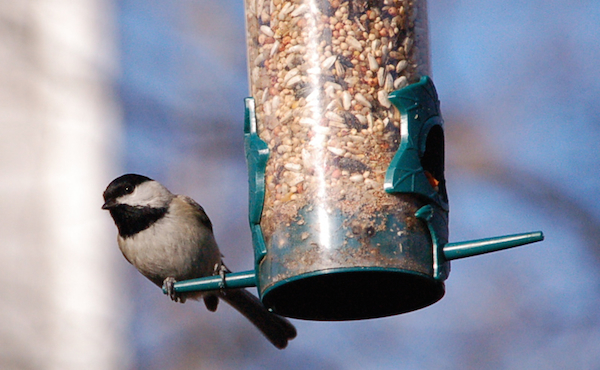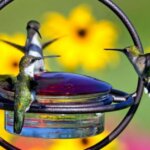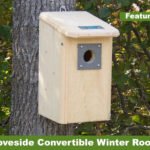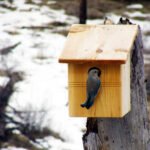
Not too long ago, I wrote an extensive Guide to Wild Bird Food that covered pretty much all types of food regularly offered to backyard birds. While you have a ton of variety in what you can give, depending on the species you’re trying to attract and the feeder you have, there are also a number of foods you should avoid giving birds.
Here’s a round-up of some of the worst foods you can give to birds.
Salt

Birds love peanuts, so it’s OK to give them all of these salted peanuts, right? Wrong. As with most of the food on this list, a small amount of salt isn’t going to cause any damage to your bird’s system, but anything more and your backyard bird could be faced with an array of potential health issues.
Bird kidneys are not as efficient in removing salt from a bird’s system, so you can imagine the type of damage that occurs when there’s a build-up. Unlike sea birds, whose bodies have been developed to regulate salt levels, most birds have an inability to excrete the amount of salt needed to sustain a high-salt diet.
So while salt will not necessarily lead to birds falling out of the sky, it’s a good idea to avoid giving salt to your birds.
Chocolate

When something tastes as good as chocolate, it’s usually a safe bet to assume that it’s going to be bad, but did you know that chocolate is actually toxic? The reason we aren’t affected by it is because it takes one pound of chocolate to kill seven pounds of animal, according to this article.
Since birds (and even dogs) are much smaller than humans, it takes less chocolate to seriously injure or kill an animal. When a bird consumes too much chocolate, it can result in vomiting, diarrhea, seizures and even death. Since you might not know how little chocolate is needed to cause damage to a bird’s digestive and nervous system, it’s best to not give them any chocolate at all.
Caffeine

This one might seem pretty obvious, but it’s important not to give birds any caffeine. That means coffee, soda and tea are all bad for birds. It raises eyebrows when I admit it, but I never drink coffee. So when I try someone else’s once in a blue moon, it causes me to shake, raises my heartbeat and makes me feel wired. If you give a bird a sip of coffee, it could cause cardiac arrest.
Caffeine in chocolate is one of the reasons why chocolate is so bad, which is another argument against it.
Honey

If you’re out of sugar and need to make some more hummingbird nectar, you might think it’s fine to use honey instead. You’d be absolutely wrong.
While there’s some conflicting belief that honey is bad for birds, it’s generally not a good idea to feed your birds honey (especially unpasteurized honey) because it is known to harbor harmful bacteria like E. coli, Listeria, molds/fungus and Botulism. There’s really no need to give birds honey, so don’t.
Certain Fruit Seeds & Pits

We all know how much birds love oranges and even eat the seeds, but some seeds found in fruit can contain small amounts of cyanide. You should avoid putting out apple seeds and pits from cherries, nectarines, peaches, plums and avocados (the toxins leak into the rest of the fruit so avoid avocados all together).
Bread

This is something we’ve harped on here for a long time, but giving bread to birds just isn’t a good idea. While it won’t necessarily kill birds, it can negatively affect their diet. Bread has no protein or nutritional value but it does have carbohydrates and can lead to health problems like obesity.
Not all bread is bad for birds, though. Whole grain and multi-grain breads can be healthier for birds, but it’s probably easier and safer to sprinkle some birdseed for them instead.



